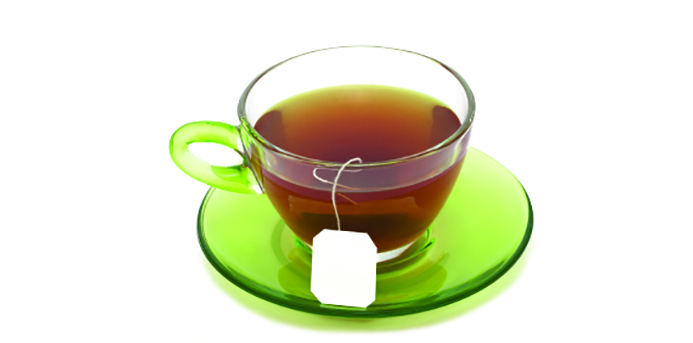Ladies who lunch have become eco-rebels with a cause — saving and preserving the environment.
Twenty lovely ladies sipped coffee or tea and nibbled on homemade apple crêpes served on antique china in Margrit Kuehn’s aqua-gray, Prairie-style east Wilmette dining room. This could have been a garden club gathering from decades past, except for a few 21st-century details.
The coffee was “free-trade,” grown by small eco-friendly producers. The tea was organic and green. Displays promoting energy-efficient CFL light bulbs, environmentally kind cleaning products, composting, biodegradable dog-dropping bags and alternative-energy sources, like solar panels, covered the oak dining furniture. Easels mounting posters plastered with Living Green newspaper articles made it difficult to see the Oriental rug below.
If you think Garden Club meets Environmental Activist, you can imagine the conversation that swirled around Kuehn’s dining room for 30 minutes.
“Just how long do these bulbs last?”
“Three to five years. And do you understand that they use only one-third the electricity of their traditional counterparts?”
“What college did your son decide on?”
“Does anybody really compost in the suburbs?”
“Don’t the bulbs have mercury in them? Just how do we dispose of them safely?”
“Bess Hardware is the only place we know that collects the used ones. But we’re working on that … and the mercury issue.”
“You can buy phosphate-free detergent online, but my favorite is at Trader Joe’s.”
“Do you know that Sangita replaced all the light bulbs in their home and cut the electricity bill by 45 percent the very next month? Great return for only one afternoon’s efforts.”
After 30 minutes, the guests circled together in the living room in front of the fireplace, on either side of which sat Kuehn and the Green Tea moderator, Beth Drucker. They introduced a 21st-century parlor game — the environmental version of Speed Dating. Every guest introduced herself and added one comment — a gripe, a tip or a question.
Kuehn, an athletic brunette from Brussels who moved to New York City in ’81, married attorney Mark Brandt in ’82 and settled in Wilmette with him and their three children 14 years ago, starts. “My pet peeve is lawn mowers, so please let me tell you about the best battery-operated ones.”
With every tip or suggestion guests offer, Drucker emphatically nods. “You’re right,” she says. “That’s absolutely doable. It’s immediate, and it’s easy.”
Drucker empowers everyone in the room to feel they can make a difference in global warming with minimal effort. Then she encourages them to go one step further, too, and collaborate with others.
“When a few people take on an issue or project together, they can solve problems in no time. When concerned people get together to talk about an issue, they inspire one another and come up with solutions,” Drucker explains.
The environmental camaraderie and energy generated at Kuehn’s Green Tea that spring day is spreading. The lovely ladies adopted many of the suggestions on the hand-out “Ten Easy Ways To Combat Global Warming,” including using stylish totes to carry their shopping items instead of the plastic or paper options that stores provide.Four other teas already have been scheduled. Wilmette’s Jane Litin quips, “Half my rooms are painted green, so I should definitely host one! Mine will be in the evening to target working women.”
Kuehn found her way to the Green Tea movement when she ran into two different dynamic women working on global environmental problems at a local level. She thought, “This is a sign. It’s time for me to get active in my community, too.’”
Why did she start her community activism with a Green Tea? “It’s an informal setting, and many people are intimidated by the whole environmental movement. They don’t know where to start, what to do. But the familiarity of friends makes it easier to get started or get involved,” Kuehn explains.
Winnetka’s Mary McLaughlin founded the North Shore’s Green Tea movement. Her first event was so successful that she gets phone calls and e-mails asking to attend her next one, scheduled for this summer. One aspiring attendee included bumper-sticker humor in her e-mail request for an invitation. “Renewable Energy – our best Homeland Security.”
If you feel similarly inspired to Make It Better by gathering friends to socialize and discuss simple daily life changes that make us part of the global-warming solution, McLaughlin, Drucker and Kuehn provided the following “How To Host” suggestions based on their experiences. More information, including tips and favorite links to helpful information can be found online at www.MakeItBetter.net/environment.
HOW TO HOST A GREEN TEA
Plan a party with a purpose to exchange ideas, get inspired and be an inspiration to others.
1. Set a date and a 90-minute time frame.
2. Consider asking a friend to co-host and/or invite an environmentally knowledgeable community member to moderate.
3. Invite three times the number of people you hope to attend (people are busy) and remember that e-mail is the greenest of all invitations.
4. Gather materials for display to inform guests and spark their interest and questions. Ask friends to bring one article or green item to share.
5. Allow 30 minutes for socializing and material review.
6. Gather guests into a comfortable area for no more that 60 minutes of discussion. Let every guest introduce themselves and share one comment — a gripe, tip or question.
7. Designate your invited expert or one other person as the discussion moderator.
8. Conclude by asking guests if there is one thing they will change as a result of the conversation.
9. Have fun!
If you have any questions, or know of any resources to promote living green on the North Shore, please send them to: Susan@MakeItBetter.net.

